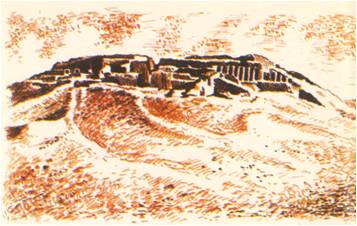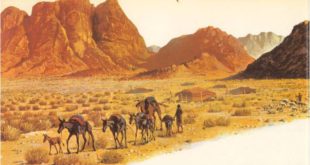If you had been a citizen of the ancient Greek city of Athens on a fine spring morning in 409 B.C., you would have gathered with thousands of your fellow citizens on a hillside inside the city. You would then have listened carefully to the discussion of various matters of business, conducted by the chairman and secretary of the meeting from a platform below and facing you. You would have seen an Athenian citizen thread his way from the hillside to this platform. This was a sure sign that he had a proposal to make to the voters. The citizen …
Read More »Tag Archives: Alexander
The November Revolution 1917
LENIN’S REAL name was Vladimir Ilyich Ulianov. Like most Russian revolutionaries, he had taken another name to protect himself from the Police. He looked like anything but a leader of men; someone once said he looked more like a small-town grocer. He was short, stocky, bald and wore a small heard. His clothes were shabby and his pants were usually too long. He was not a great orator but he had a gift for simplifying and explaining complicated questions, which made him an effective speaker before crowds. Lenin was born in 1870, the son of a schoolteacher who became an …
Read More »Emperor of the French 1804 -1815
On December 2, 1804, in a ceremony of great pomp and splendour at the cathedral of Notre Dame in Paris, Napoleon Bonaparte was crowned Napoleon I, Emperor of the French. Pope Pius VII was there. He had come from Rome to offer his blessing and to place the crown on the head of the new emperor but Napoleon did not do what was expected of him. Instead of kneeling, he took the crown from the Pope’s hands and put it on himself. He also placed a crown on the head of his wife, Josephine. Only twelve years had passed since …
Read More »Rome and the Christian Church A.D. 64 -180
TRUMPETS sounded the fire alarm in Rome on the night of July 18, in the year 64. It seemed that the flames first broke out in the crowded section near the Great Circus and spread rapidly, driven by a strong wind to row after row of wooden houses. Sparks carried by the wind started other fires. People fled in panic. The fire roared on unchecked, continuing for six days and six nights. When it was finally brought under control, most of the city lay in ruins. People could not believe that one small accidental fire somewhere could have caused all …
Read More »The City of Caesar 80 B. C. – 44 B. C.
THE story of Rome in the years after Sulla’s death was the story of a partnership of power. It was the tale of three men who bargained for the world — a rich man, a poor man and a man who was not only a hero, but looked it. The rich man was Crassus, who had become a millionaire by setting up the only fire department in Rome. The tall buildings and narrow, crowded streets of the city made a fire a constant danger. When one house burned to the ground, the buildings on either side were likely to fall …
Read More »Greece and the World 323 B. C. – 250 B. C.
In the last years of the fourth century B. C., Greek citizens going about their business in the stoas or the shops sometimes stopped and wondered what was wrong. Everything seems strange. They themselves had not changed and their cities looked the same as before, but the world around them was so different that they could hardly recognize themselves. The little poleis on the mainland looked out at an enormous empire, which stretched across Asia and Egypt. They shipped their olive oil and pottery across the Mediterranean. Their corn came from fields beside the Black Sea and the Nile. Merchants …
Read More »The Conquerors 343 B. C. – 323 B. C.
In 343 B. C., the philosopher Aristotle left the quiet of his study and journeyed to Macedonia, a country in the mountain wilderness north of Greece. He had been hired to tutor the rowdy young son of a king. The boy, Alexander, was a yellow-haired thirteen-year-old. His manners were polite and he seemed to be clever enough, but he was wild. It was hard for him to pay attention to his studies. He much preferred galloping across the fields on his huge horse. He proudly told his new tutor that he had tamed the horse himself. When he did come …
Read More »Civilization comes to India 3500 B.C to 200 B.C.
For thousands of years during the Stone Age, only scattered groups of people had lived in India. With only the simplest tools of bone, wood and stone, they hunted and gathered food. Cut off from other peoples by the mountain and the sea, the first Indians made few advances in their primitive way of life. Then, sometime between 3500 B. C., new settlers began to appear along the Indus River Valley in northwestern India, a region that would be called West Pakistan thousands of years later. It seems almost certain that these newcomers were from the mountains and plateaus to …
Read More »A New People, a New Faith 650 B. C. – 330 B. C
BABYLON, the final capital of Mesopotamia civilization, had fallen to warrior tribesmen from the east, the Medes and Persians. The Medes and Persians were descended from the Aryan peoples who for centuries had been moving out of the grasslands of central Asia with their horses and herds. Some of the Aryans settled in the valleys and slopes of the mountains surrounding the great arid plateau between the Persian Gulf and the Caspian Sea. From them the region took its name, Iran, or Land of the Aryans. The Aryans who lived in the mountains northeast of Mesopotamia were the Medes, familiar …
Read More »The People of One God 3000 B. C. – 30 B. C.
On the plains of Mesopotamia, a young man stood gazing up at the stars that glittered from the dark sky of night. He was Abraham, a native of the Sumerian city of Ur. Abraham was a Hebrew, one of the many tribes of Semites said to have been descended from Shem, the son of Noah who had been saved from a great flood many years before. Like all people of his time, Abraham believed in many gods throughout nature. As he studied the pattern of the great stars for the god’s message, Abraham began to feel he was in the …
Read More »








